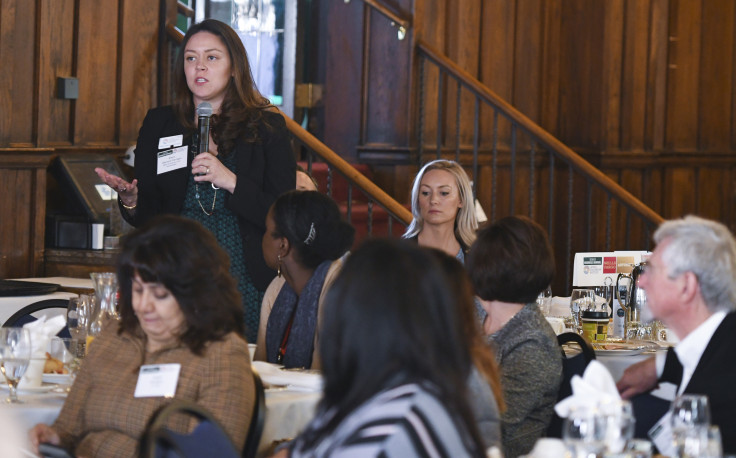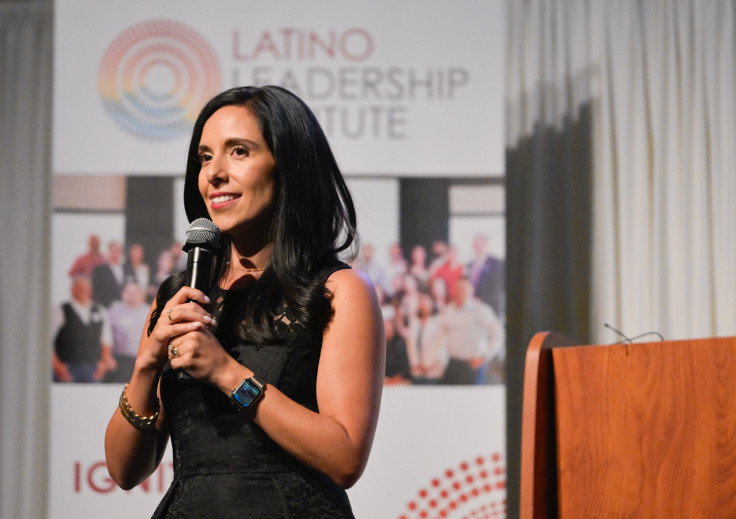
In 1990, Latinos represented 8 percent of the U.S.'s workforce participation and held 3 percent of executive leadership positions, according to figures from the country's Department of Labor and Bureau of Labor Statistics.
20 years later, Hispanics and Latinos are almost 20 percent of the workforce, but the proportion of executives hasn't changed, widening this representation gap to 450 percent. Now it's on track to increase to 650 percent by 2050.
The Latino Leadership Institute (LLI) is seeking to change that outlook. It has two main programs to do so: Ignite, which seeks to build skills like confidence and the development of executive decision-making techniques, among others; and Leap, a "Growth-Stage Accelerator" for business leaders, which gives them access to technical, social and financial capital.
The Latin Times spoke to Joelle Martinez, CEO of LLI, about the organization's work, the changes she's seen throughout the years in the different cohorts of Latinos taking the program and the main challenges they face in the professional world.
This conversation has been edited for length and clarity purposes.
What was the conception of LLI like?
Nine years ago we had a vision for the future where Latinos would be serving elevated roles across every sector and industry, but the data informed us at that time that despite our massive demographic growth, despite our massive economic contributions, Latinos were invisible in almost every leadership role across every sector and every industry in the United States.
So we decided that we were at an inflection point and we had to do something different. We began the Leadership Institute to prepare Latino leaders so that we could change these outcomes.
How do LLI's two main programs work?
Ignite is a national program where we run public engagements every other month. We're starting new cohorts of 30 Latinos every time. We also have that program embedded within our corporate Partners.
With Leap, we're really focused on Latino entrepreneurs. This is a nine-month program where we really build technical social and financial Capital into our Latino entrepreneurs. They have monthly sessions but we are regularly providing advice and consultation to our Latino businesses.
At a daily level, we work with our network to make sure that they have access to information and to job opportunities and board and appointment opportunities regularly.
Most of Ignite's skills can be considered soft skills. How important are they in your experience when compared to hard ones?
I call them core skills, rather than soft. We've made a pivot in our research and analysis. Companies today will tell you that if they hire for potential, they do it based on dedication, effort, will, tenacity and some of these things that we call soft skills, like emotional intelligence and confidence. You'll see that they are actually going to not only retain those employees, but you're actually going to see greater success than if they're just hired for technical skills or academic achievements.
I think that these skills are essential for anyone to succeed. I think they're incredibly important for Latino professionals because a lot of time we are not given the benefit or the opportunity to sharpen our soft skills because we are so focused on being technically flawless. It's why we blend those skills with some of our neuro leadership components like productivity and agility, and decision making.

Have you changed your programs since the start of LLI based on evolving needs that you perceived?
Covid changed us forever, but we had already started working on a strategic plan to figure out how we could open out curriculum and social network to more Latinos because the need is so great. In 2018, we started the process to turn our program, which was originally delivered only in person and only in Colorado, to delivering it virtually, so that anyone who is interested in wanting this type of leadership development could access it. We relaunched it in 2020.
The second change is that we are growing a pipeline of Latino experts and facilitators who are trained in our content, our methodologies, trained in our curriculum so that we are prepared to scale this program again.
And the final aspect is that we've got to continue to evolve and change. When we started 10 years ago we were dealing mostly with Gen X and their experiences and values. We're a lot different than Millennials and Gen Zs, who are coming into the workforce now. We started noticing about five years ago some major shifts in thinking and approaches and career navigation. So LLI is constantly looking at that, exploring and updating our materials because we've got to relate to their experiences, which are not necessarily the experiences that we had.
Can you elaborate on the differences you've seen between generations?
I think of it as a mom of Gen Z's. It's easy for me to see how they see the world differently. I would say, our Millennials or Gen Zs, they grew up post 9/11. They have survived and lived through Covid and events like George Floyd and very volatile election cycles. They have internet and social media and 24-hour news cycles. Their world and framework are just different and what we see coming out of that from a professional lens is impatience, they want to show their true selves, not hide.
They are part of what I call the 200% club. They're unapologetically American and they're 100% Latino. They don't bargain with that and that's a lot different than a lot of the experiences that the Boomers and the Gen X had when they were really facing a lot of kind of assimilation practices. I think that that's why companies are gonna have to evolve, because the younger generation is not okay with leaving their cultural identities at home to get ahead at work, whereas maybe the older generation did.
How do you apply these lessons that you seek to convey through LLI in your own professional career?
I'm a work in progress like so many of the Latino professionals that we work with. I suffer just like everyone else from, sometimes, a lack of confidence. And I've never seen people who look like me doing what I do and in the spaces that I've been in. We're so few and far between that it's really hard to ever know if I'm doing it right.
One of the tricks that I always talk about to folks that I'm working with is I had to learn how to take compliments and not shove them off, I have to embrace that confidence. One of the value sets that I, like many Latinos, learned, is the value of humility and gratitude which are our core in a lot of ways, but at times in the professional world that could come across as I'm not ambitious or not confident and so I have to build up some of these other important factors.
The other one is I'm a Latina and I'm a mom. As many Latinas, I have made decisions about my career based on what it would mean to my family. There's a statistic out there that 40% of Latinas will make a career decision based solely on familiar obligations. So I've turned down promotions, I've turned down big opportunities. So if companies want more Latinas in leadership positions, they're going to have to get more in tune with some compromises that have to take place because we're not going to be willing to just walk away from our family.
Do you see companies moving in that direction?
They have to expand their understanding of the Latino experience before they start creating solutions to address it. Quite frankly, there are so few Latinos that are leading the strategy within companies around Diversity, Equity and Inclusion and human resources. In fact, 76% of all human resource officers are still White. So we are not in these positions to make decisions and build strategies and align business investments to create change. We're still invisible in those spaces. So most companies don't even know what the issues are... Let alone have the solutions to address them.
© 2024 Latin Times. All rights reserved. Do not reproduce without permission.
Arizona Democrats garner enough votes to repeal 19th-century law banning most abortions
Colombian President Petro announces country will sever diplomatic ties with Israel amid Gaza conflict
New Mexico Republicans Urge Gov. Lujan to deploy National Guard to border amid smuggling and fentanyl crisis
Almost four in ten Latinos report being called a racial slur in the past year
